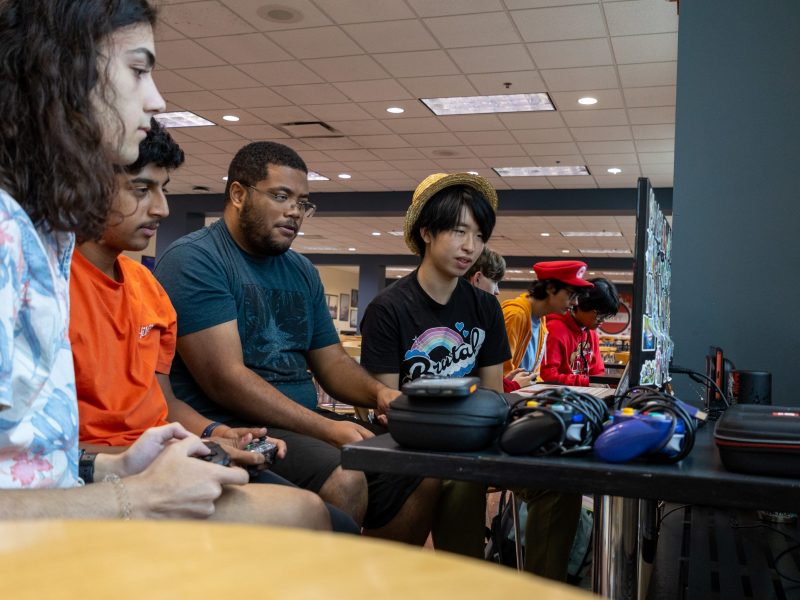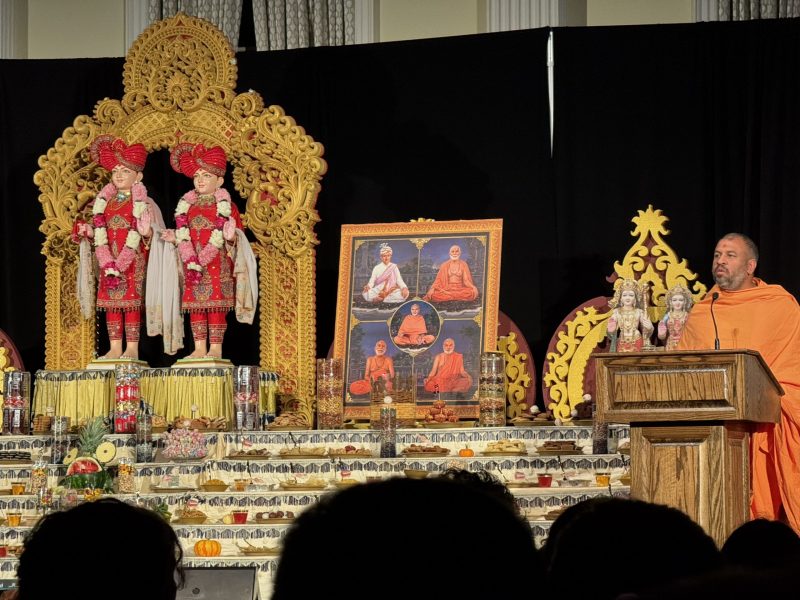Cynthia Cohen last went trick-or-treating when she was about 14 years old.
She remembers going door to door in her neighborhood, usually with her brother, and always having a fun night.
“There’s kind of a stigma from people,” the junior geography major said. “It gets into this teenage hooligan idea and it’s just kind of disapproved.”
When you’re a kid, Halloween means knocking on doors with a pillowcase full of candy. Somewhere between middle school and college, that thrill becomes something you’re “too old” for. On college campuses and at the University of Maryland, most students wouldn’t dream of saying “trick or treat,” even if they still want to.
There’s no rule that college students can’t go trick-or-treating; the unwritten expectation that they don’t is rooted in maturity and social expectations.
“People just get less into it as they get older,” sophomore communication major Ava Zotollo said. “They might get embarrassed to be walking around neighborhoods and knocking on doors.”
[SNL’s Marcello Hernández keeps it real in SEE’s Homecoming Comedy Show]
Zotollo said students could revisit trick-or-treating as a nostalgic way to reconnect with their childhood. She would go trick-or-treating again if others joined too, she added.
Sociology lecturer and academic advisor Amy McLaughlin said many people view trick-or-treating as something meant for children.
But McLaughlin said the excitement of childhood Halloween traditions could be recreated on college campuses if people work together to create their own version of it.
“It is a purely fun holiday for kids with dressing up and getting free candy,” McLaughlin said. “It brings about only good memories.”
Although Cohen doesn’t trick-or-treat on campus, she said it’s fun to celebrate with friends and put effort into costumes.
In dorms, resident assistants look to create festive feels during the holiday through dorm decorations and free candy handed out to students.
But when Halloween night arrives, many turn to flashing lights, music and crowded rooms. On college campuses, students hop from bar to bar instead of door to door like they did in the past.
[‘Springsteen: Deliver Me from Nowhere’ fails to honor its legendary subject]
Even so, McLaughlin believes that if students dive into their childhood traditions of trick-or-treating, they might feel like an escape of responsibility and tradition to adulthood.
“There’s a lot of pressure on the generation that is kind of aging out of trick or treating now, and I think that doing something fun and kind of recreating the magic of your childhood,” McLaughlin said. “It is a real escape and it’s a night of low stress and just high fun.”



